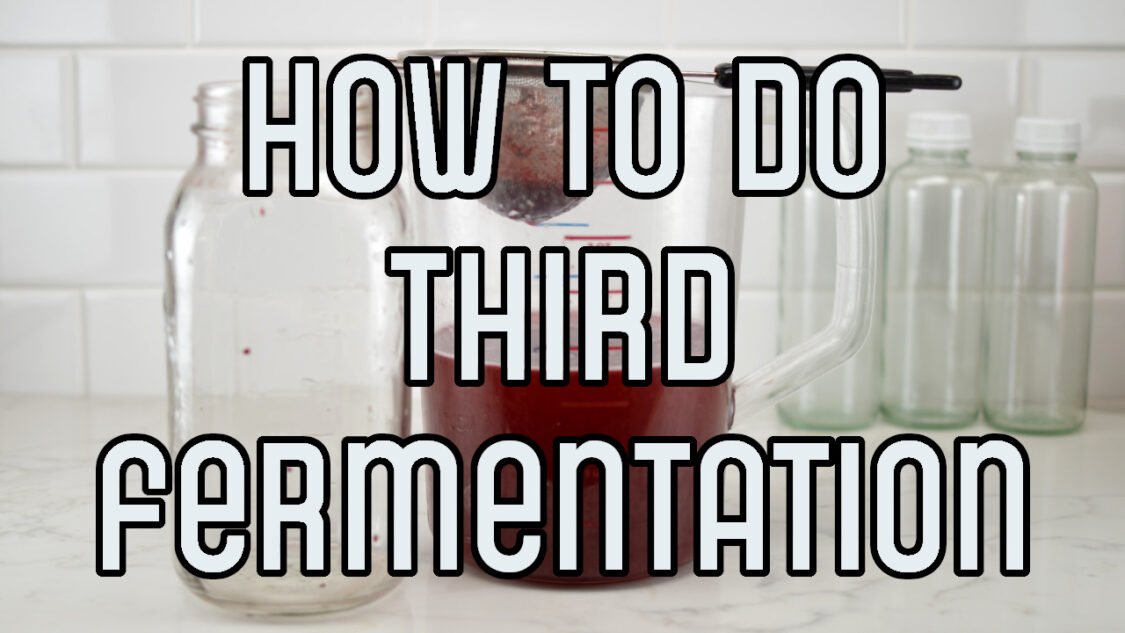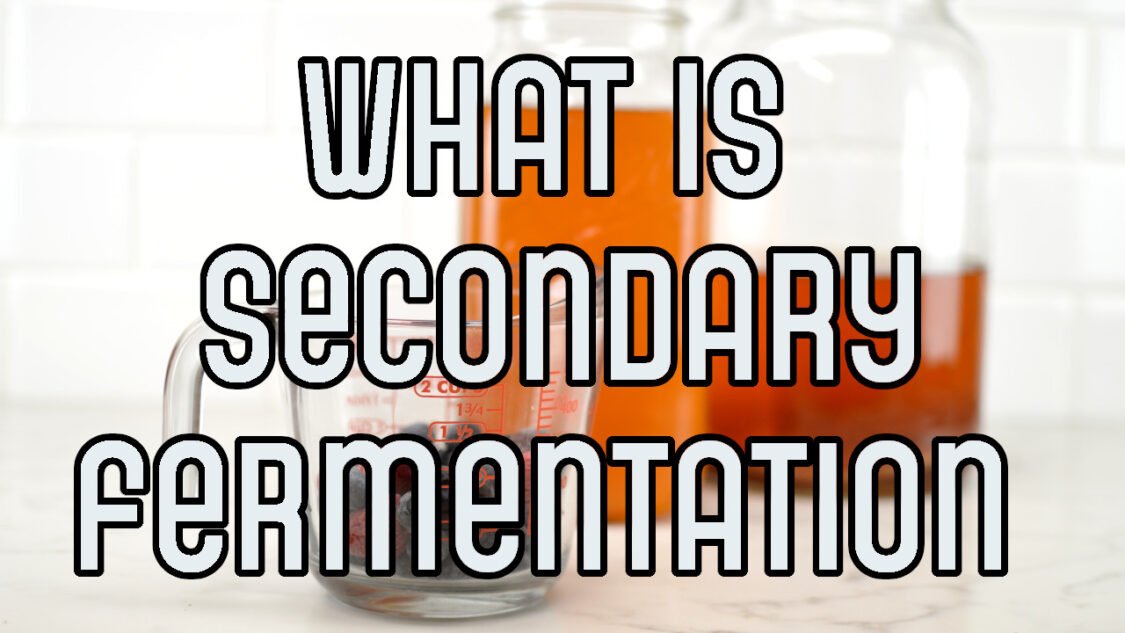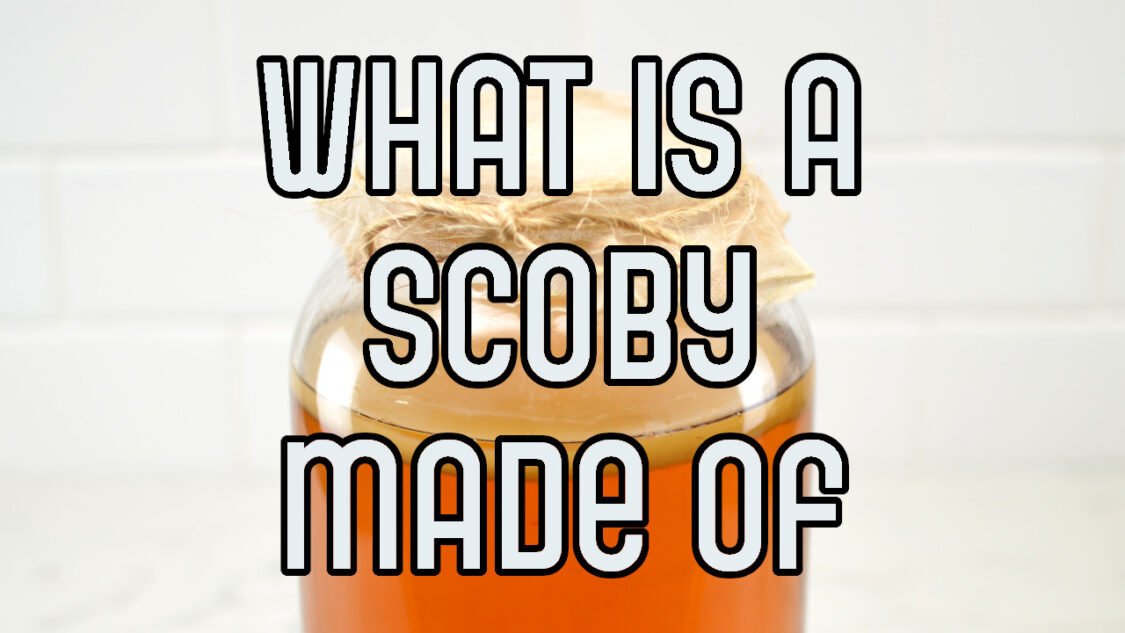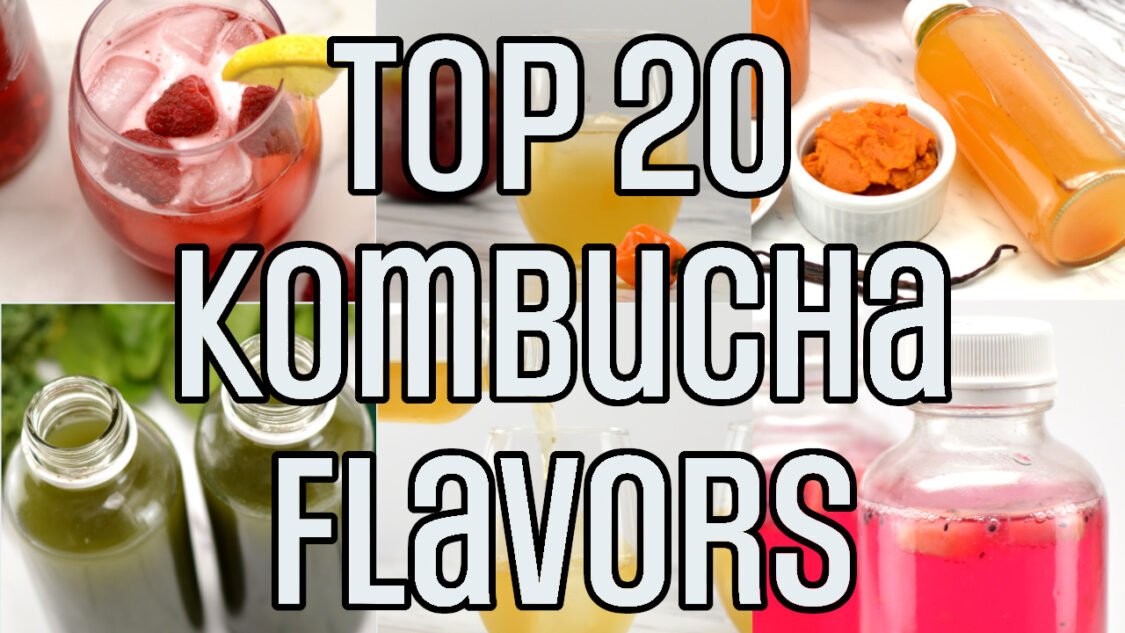What does kombucha taste like?
If you’ve had kombucha you understand the uniqueness of the flavor and if you haven’t tried it you’re likely wondering “What does kombucha taste like?” This article tries to explain it.
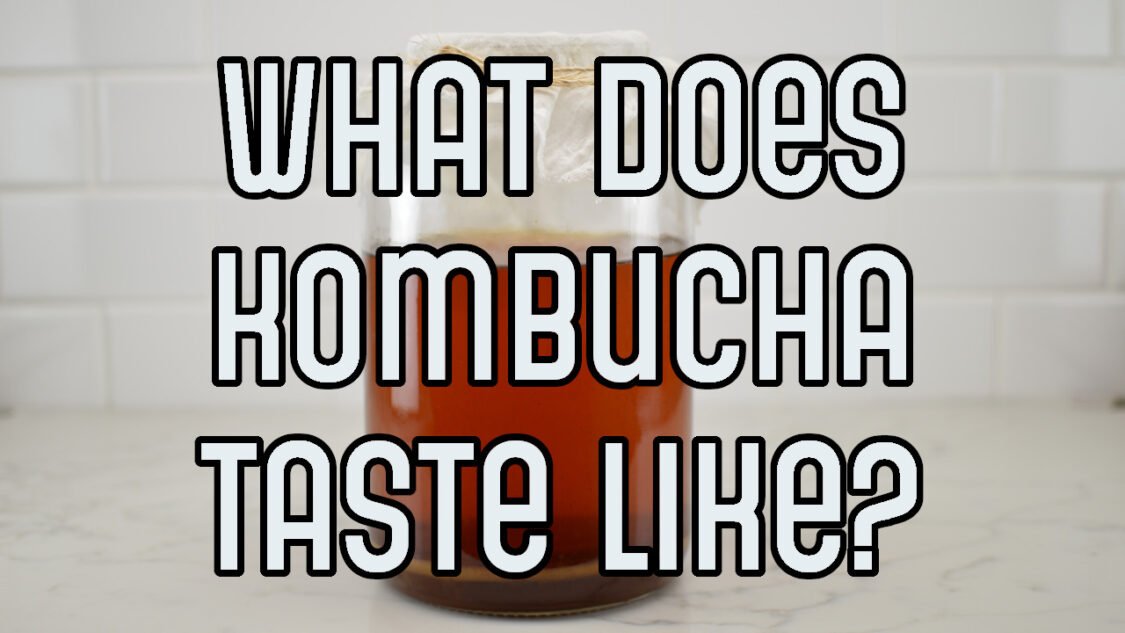
Kombucha is a strange name and the beverage looks a bit odd too with a range of colors from brown to red to blue. The taste of kombucha is a unique flavor experience too, likely much different than most anything you’ve likely ever tried.
What Does Kombucha Look Like?
The first thing most people notice about kombucha is what it looks like. Kombucha is a treasure trove of color and texture. Its natural hue is a rich, earthy brown or amber, but the addition of various fruits and herbs can imbue it with every shade of the rainbow.
At times, the beverage may even take on a cosmic quality, with swirling, nebula-like specks suspended within the bottle. And, as a result of the fermentation process, a fluffy layer of sediment often settles at the bottom of the bottle. This sediment, mostly consisting of yeast, is completely safe to drink and adds a unique depth of flavor to the brew.
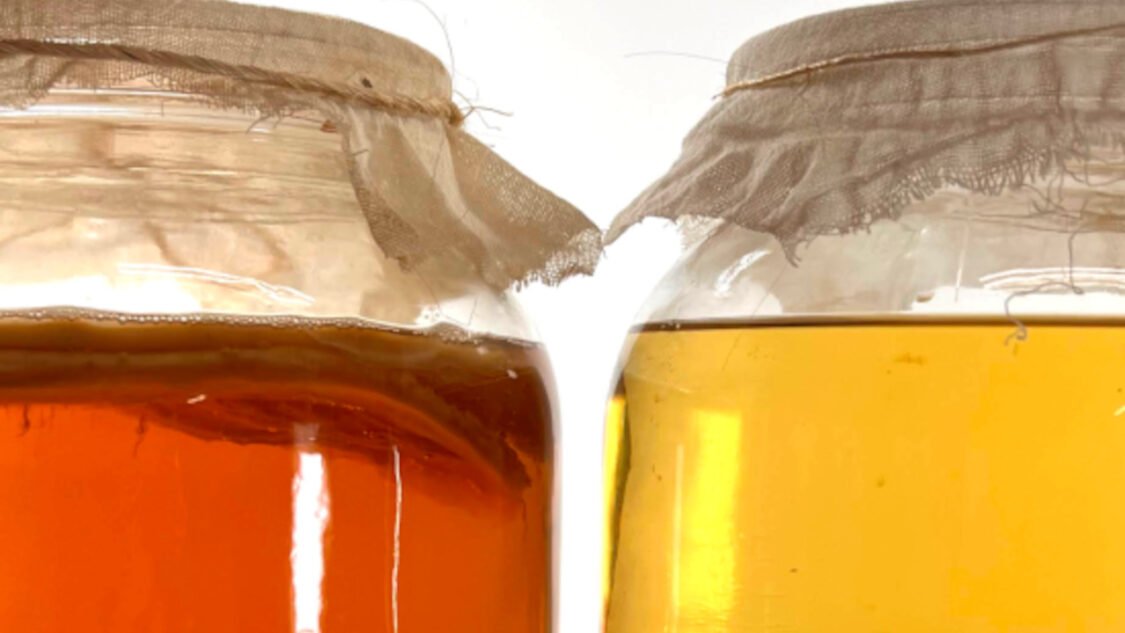
What is the texture of kombucha?
Kombucha is bright, brilliant, and effervescent. The level of carbonation (fizziness) can vary depending how much sugar was added at bottling and the bottle conditioning temperature and time. The carbonation of kombucha is typically soft, light, and tongue tingling! Kombucha is not as bubbly as most soda, not as sharp as beers and does not have the syrupy thickness that you might expect in a soda.
What does Kombucha SMell Like?
Smell is a very important contributor to what you taste when drinking kombucha. What we smell when tasting food or drink is responsible for about 80% of what we can taste. Without using our sense of smell, we can only taste five distinct sensations: sweet, salty, sour, bitter and the newly discovered “umami” or savory sensation. All other flavors that we experience come from smell.
The smell of kombucha is one of the first things you will notice when you open a bottle or pour it into a glass. Depending on the flavor you select, you may smell fruits such as apples or botanicals (herbs of spices) first. You may also notice a slightly vinegary smell. That’s totally normal. That vinegary smell isn’t as strong as a bottle of vinegar or dressing, for instance, but it is notable. The vinegary smell is typically stronger than the taste.
What Does Kombucha Taste Like?
Kombucha has a taste uniquely its own. It’s fizzy, a bit tangy and slightly sweet, similar to sparkling apple cider but with a more pronounced sour taste. Depending on the added flavors, it can even taste fruity, floral, spicy, or herbaceous. Regardless of the specific flavor profile kombucha is very refreshing!
Finished kombucha doesn’t taste at all like brewed tea anymore. Homemade kombucha can be mildly sweet or mouth-puckeringly sour. The balance of sweetness and tartness is a function of how it was made and is most impacted by the time and temperature of the kombucha fermentation. Warmer and longer = more tart and less sweet.
If you make kombucha and find it’s too vinegary for your tastes check out my post on how to fix vinegary kombucha.
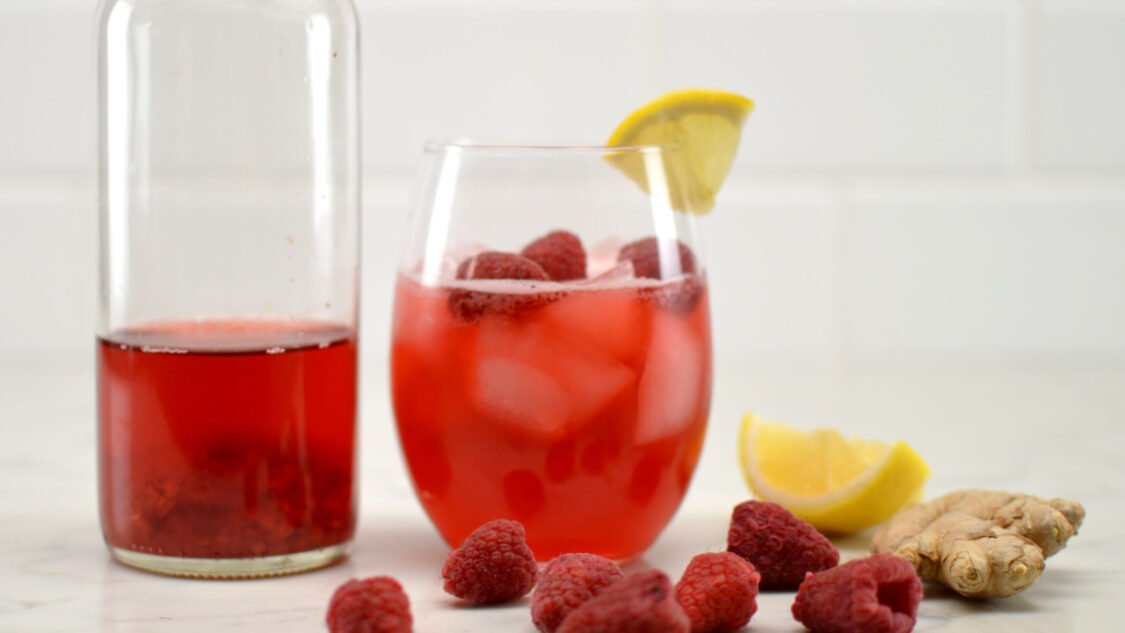
Want to go deeper?
If you like to geek out on Kombucha Science, there are several scholarly papers that go into great detail about the sensory characteristics of Kombucha here is a 2017 research paper that is free to access:
Katarzyna Neffe-Skocińska, Barbara Sionek, Iwona Ścibisz & Danuta Kołożyn-Krajewska (2017) Acid contents and the effect of fermentation condition of Kombucha tea beverages on physicochemical, microbiological and sensory properties.
Helping you learn to brew kombucha, find inspiration for new kombucha flavors and use kombucha to make kombucha mocktails

